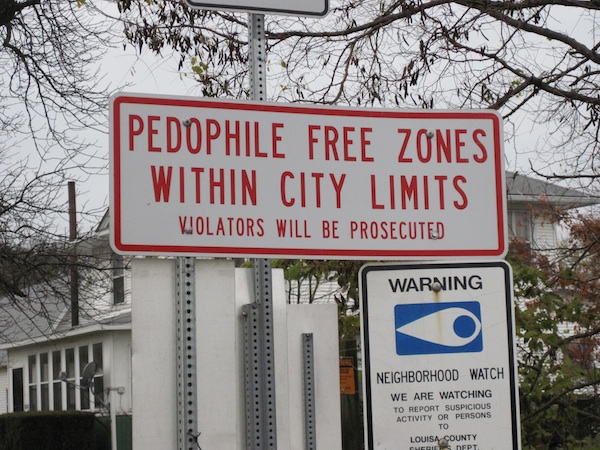Although separated by time and place, there is one thing the 2003 murder of schoolboy Daniel Morcombe and the 2012 murder of ABC staffer Jill Meagher have in common – both cases have raised serious concerns about how sex crimes are prevented in Australia.
The statistics paint a grim picture of the current framework, with approximately one in six women and one in twenty men reporting to have experienced sexual assault since the age of 15.
The situation is just as bleak among children, with 67.7 percent of respondents to an ABS survey admitting to have been sexually abused before the age of 11.
Therefore it is no wonder that the community has shown intense interest in the idea of a publicly accessible sex offenders register as an alternative method of prevention.
Speaking to upstart, media personality and outspoken critic of the criminal justice system, Derryn Hinch, has made no secret of his support for the idea.
“I’m all for it, absolutely 110 percent, it’s what’s safest for the community,” he says.
“People think I’m a redneck on this, but there are too many crims finding loopholes in the legal system and there has to be some way the public can know where they are.”
Fresh from his stint in prison, Mr Hinch has been busy petitioning for the introduction of a system of public notification very similar to what is in effect in the United States.
Congrats, Australia. The sex offenders’ register petition has passed 80,000. Now believe we can hit the 100,000… http://t.co/CCVwGDdgcq
— Derryn Hinch (@HumanHeadline) March 18, 2014
With most Australian jurisdictions only requiring offenders to register with police, Mr Hinch wants to see public disclosure laws introduced by the Clinton Administration in 1996 to be replicated in Australia. .
Western Australia has already tried it, after legislative amendments saw the introduction of a publicly accessible online disclosure system in 2012.
The website, which operates under three tiers of offender classification, has been so popular that it reportedly crashed on its launch day and has since accumulated over 100,000 hits.
South Australian Police have also been given limited disclosure powers that allow the publication of offenders’ details on the police website.
Whilst definitely a step in the right direction, Mr Hinch remains convinced that a national schemes will be more effective.
“It’s still too limited,” he says.
“You only get a name and not much else. It just doesn’t compare with America where you can get mobile apps telling you everything about an offender, from his name and address to details of his crimes.”
But not everyone shares Mr Hinch’s passion with leading child protection advocate Bravehearts concerned about the necessity of a public register.
A spokesperson for Bravehearts has told upstart that despite the attractiveness of a public register, the best way to enhance community safety is through continued incarceration of offenders.
“It is our position that the best prevention is detention,” the spokesperson says.
“Dangerous sex offenders should not be released until they are low enough in risk to be managed in the community and we have continued detention legislation in place across Australia to achieve this.”
This reluctance stems from the fact that public schemes often create a false sense of security for communities because they only identify convicted sex offenders.
Given that most sex offences take place within family circles and other structured social activities, merely identifying convicted offenders would have little impact on reducing the overall prevalence of sex offences.
The Victorian government also has doubts about public notification schemes following a number of high profile cases of community vigilantism against sex offenders.
Dennis Ferguson is a notorious example; having been repeatedly driven out of towns in Queensland and New South Wales after angry residents and the media learned he was living among them.
However, Mr Hinch claims that any concerns about vigilantism can be handled by the legal system.
“People pay for their crimes with incarceration and you cannot tolerate double punishment,” he says.
“Vigilantism hasn’t happened in the US. I’m pretty convinced that the laws of the land will easily sort out anyone thinking of roughing up a sex offender.”
So is Australia ready for a public register?
The support for it is certainly there, but this cannot escape the doubt surrounding the logic of investing in a scheme that cannot guarantee a reduction in offending or fairness for convicted offenders.
Nevertheless, the ‘Human Headline’ remains confident that this is what Australia needs.
“There will always be people who disagree with the idea of a public register – that’s life,” Mr Hinch says.
“But how many more Jill Meaghers or Daniel Morcombes do we want to see? It’s time for a change in the system and I’m confident we can bring it.”
Tom Colwell is a third year Bachelor of Law/Media student and Politics and Society Co-Editor for upstart. Follow him on Twitter: @TomColwell2.








